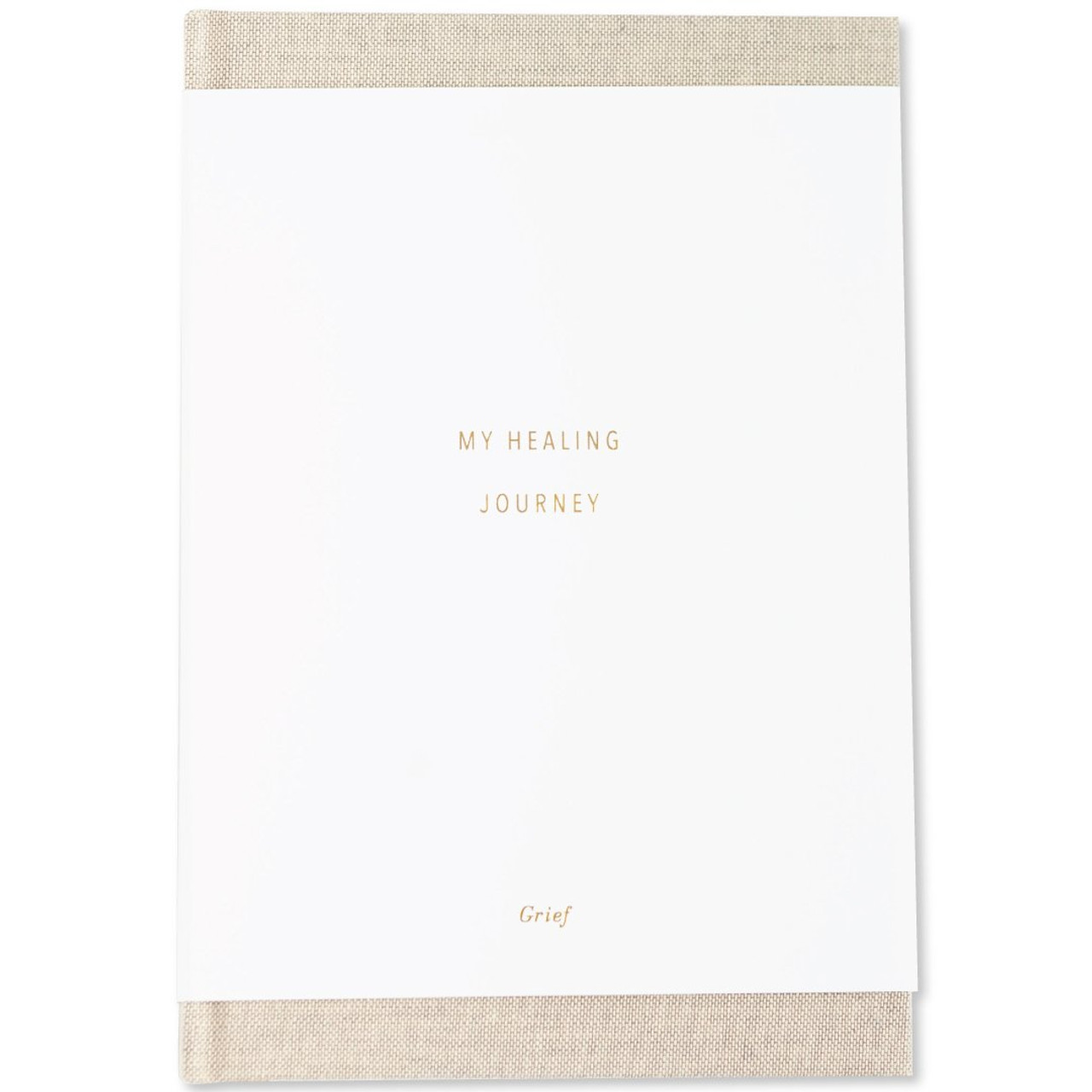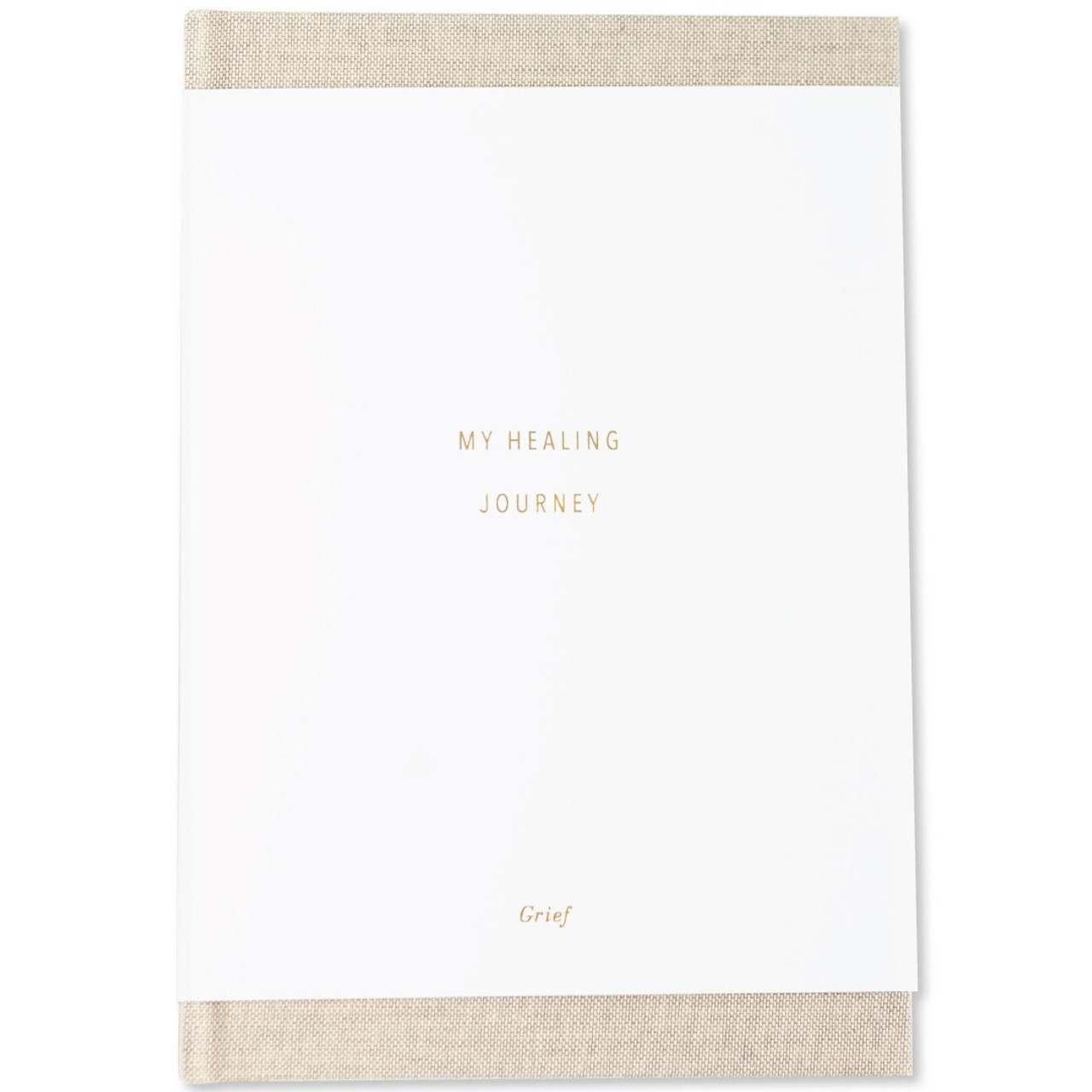Grief is a universal experience, a rollercoaster of emotions that can leave us feeling lost and overwhelmed. But what if there were tools to help us navigate this difficult terrain? “Healing Our Grief: An Interactive Journey With Music, Meditation, and Hymns” offers a unique and powerful approach to processing loss, exploring the healing potential of music, meditation, and hymns.
This book delves into the science behind how music can evoke memories and emotions, impacting the grieving process in both positive and challenging ways. It guides readers through different genres of music that can offer comfort and support, and shares personal stories of how music has helped people cope with loss.
The book also explores the benefits of meditation for reducing stress and anxiety associated with grief, providing step-by-step instructions for guided meditation practices specifically designed for healing. Finally, “Healing Our Grief” examines the power of hymns, analyzing their lyrics and exploring their historical and cultural significance.
It highlights how hymns can provide solace, hope, and a sense of connection during times of sorrow.
The Power of Music in Healing

Music has been an integral part of human culture for centuries, serving as a powerful tool for expression, connection, and healing. It’s no surprise that music plays a significant role in the grieving process, helping individuals navigate the complexities of loss and find solace in its rhythms and melodies.
The Impact of Music on Emotions and Memories
Music has a profound ability to evoke emotions and memories, often bringing us back to specific moments in time. This is because music is closely intertwined with our experiences and emotions, creating a unique soundtrack to our lives. When we listen to music that resonates with our current emotional state, it can amplify those feelings, whether it’s joy, sadness, or anger.
For those grieving, music can serve as a powerful tool for processing their emotions. Listening to music that reflects their sadness can provide a safe space to acknowledge and express their grief. Alternatively, music that evokes feelings of hope or comfort can offer a sense of solace and support during difficult times.
Music can also trigger memories of the deceased, bringing both pain and joy, helping individuals to remember and celebrate the life that was lost.
Different Genres of Music for Healing Grief
Music genres can significantly impact how we experience and process grief. While there is no one-size-fits-all approach, exploring different genres can offer diverse avenues for emotional expression and healing.
- Classical Music:Known for its calming and introspective qualities, classical music can create a peaceful atmosphere, helping individuals find solace and tranquility during times of grief. The slow, deliberate tempos and harmonic structures can evoke feelings of serenity and reflection, providing a space for contemplation and emotional processing.
Examples include works by Bach, Mozart, and Beethoven.
- Folk Music:Often characterized by its storytelling and heartfelt lyrics, folk music can connect with the emotional depths of grief. Traditional folk songs often explore themes of loss, longing, and resilience, offering a sense of shared experience and understanding. The simple melodies and instrumentation can provide comfort and connection, allowing individuals to process their emotions through the lens of shared human experiences.
Examples include songs by Bob Dylan, Joan Baez, and Simon & Garfunkel.
- Ambient Music:Designed to create a calming and atmospheric soundscape, ambient music can be a powerful tool for relaxation and emotional release. The absence of lyrics allows individuals to focus on their internal experience, allowing their emotions to flow freely without external distractions.
Ambient music can help individuals to create a space for meditation, reflection, and emotional processing. Examples include works by Brian Eno, Aphex Twin, and Boards of Canada.
- Spiritual Music:Hymns, gospel music, and other forms of spiritual music often provide solace and comfort during times of loss. These genres often focus on themes of faith, hope, and transcendence, offering a sense of peace and reassurance. The uplifting melodies and lyrics can inspire a sense of connection to something greater than oneself, providing strength and resilience in the face of grief.
Examples include “Amazing Grace,” “How Great Thou Art,” and “The Old Rugged Cross.”
Meditation as a Tool for Grief Processing

Grief can be a deeply painful and overwhelming experience. It can trigger a range of emotions, including sadness, anger, guilt, and confusion. These feelings can be intense and persistent, leading to stress and anxiety that can significantly impact your daily life.
Meditation offers a powerful tool for managing these challenges and fostering emotional healing.
Feeling a little down in the dumps? “Healing Our Grief: An Interactive Journey With Music, Meditation, and Hymns” is like a hug from your bestie, but with better soundtracks. You can Download And Listen Here and let the soothing melodies and inspiring words guide you through those tough times.
It’s all about finding your inner peace and healing those emotional wounds, one soulful track at a time.
The Benefits of Meditation for Grief
Meditation provides a space for you to connect with your inner self and process your emotions in a safe and supportive environment. It allows you to observe your thoughts and feelings without judgment, creating a sense of calm and acceptance.
Regular meditation practice can help reduce stress and anxiety associated with grief by:
- Calming the Nervous System:Meditation activates the parasympathetic nervous system, promoting relaxation and reducing the body’s stress response. This can help alleviate physical symptoms of grief, such as racing heart, shortness of breath, and muscle tension.
- Reducing Negative Thoughts:Grief can often lead to negative thought patterns, such as self-blame or rumination. Meditation helps cultivate mindfulness, allowing you to become aware of these thoughts without getting caught up in them. By observing your thoughts without judgment, you can gradually shift your focus to more positive and helpful perspectives.
- Improving Emotional Regulation:Meditation helps you develop a greater understanding of your emotions and how they manifest in your body and mind. This awareness empowers you to regulate your emotional responses more effectively, allowing you to navigate difficult feelings with greater resilience and compassion.
A Guided Meditation for Grief Healing
Here’s a step-by-step guide to a meditation specifically designed to support grief processing:
- Find a Comfortable Space:Choose a quiet and peaceful place where you won’t be disturbed. Sit or lie down in a comfortable position, ensuring your body is relaxed and supported.
- Focus on Your Breath:Gently bring your attention to your breath. Notice the natural rise and fall of your chest and abdomen. As you inhale, feel the air filling your lungs, and as you exhale, let go of any tension or stress.
- Acknowledge Your Grief:Allow yourself to acknowledge the pain of your loss. Don’t try to push away or suppress your feelings. Simply observe them with compassion and understanding. If tears come, let them flow.
- Visualize a Safe Space:Imagine a place that brings you peace and comfort. It could be a beautiful natural setting, a cherished memory, or a place of your own creation. Spend a few moments in this space, allowing yourself to feel a sense of calm and security.
- Send Loving-Kindness:Direct loving-kindness to yourself and to the person you are grieving. Repeat phrases like “May I be well,” “May I be peaceful,” and “May I be free from suffering.”
- Return to the Present Moment:Gradually bring your awareness back to your breath and to the present moment. Notice any shifts in your feelings or sensations.
- Express Gratitude:Take a moment to express gratitude for the person you have lost and for the time you shared together.
The Role of Mindfulness in Grief Processing
Mindfulness is a key element of meditation. It involves paying attention to the present moment without judgment. In the context of grief, mindfulness helps you accept and process difficult emotions without getting overwhelmed. By observing your thoughts and feelings without resistance, you create space for healing and acceptance.
Healing Our Grief is like a treasure map, guiding us through the emotional landscape. Sometimes, we need to navigate through dark and stormy seas, just like Jim Hawkins in Treasure Island (Signet Classics) , but with the right tools, we can find our way to inner peace.
Music, meditation, and hymns are our compass, helping us chart a course towards healing and resilience.
Mindfulness allows you to:
- Accept the Reality of Loss:Grief often involves denial or resistance to the loss. Mindfulness encourages you to acknowledge the reality of the situation and to accept the pain that comes with it. This acceptance is crucial for moving forward.
- Process Emotions Without Judgment:Mindfulness helps you observe your emotions without labeling them as good or bad. This allows you to experience the full spectrum of your feelings without getting stuck in negativity or shame.
- Cultivate Compassion:Mindfulness cultivates self-compassion, allowing you to treat yourself with kindness and understanding during this difficult time. It helps you recognize that your feelings are valid and that you are not alone in your grief.
The Comfort and Strength of Hymns

Hymns, with their timeless melodies and powerful lyrics, have long served as a source of comfort and strength, particularly during times of grief. These songs, often rooted in faith and tradition, offer solace, hope, and a sense of connection that can be profoundly healing.
The Power of Lyrics in Hymns
The lyrics of hymns are often deeply personal and resonate with the human experience of loss and sorrow. They offer words of comfort and encouragement, reminding us that we are not alone in our grief. They speak of faith, love, and the enduring nature of hope, providing a framework for understanding and coping with loss.
For example, the hymn “Amazing Grace” offers a powerful message of redemption and forgiveness, reminding us that even in the darkest of times, grace and love can prevail. The lyrics “I once was lost, but now am found, was blind, but now I see,” speak to the transformative power of faith and the possibility of finding solace and hope even in the face of adversity.
Healing Our Grief is all about finding peace through music, meditation, and hymns, kinda like how Heathcliff found solace in his brooding love for Catherine in Wuthering Heights (Wordsworth Classics). Yeah, it’s a bit dramatic, but sometimes you gotta let those raw emotions out, even if it’s through a good ol’ fashioned hymn session.
The History and Cultural Significance of Hymns
Hymns have a rich and diverse history, spanning across cultures and traditions. They have been an integral part of religious services and spiritual practices for centuries, providing a shared language of faith and devotion. In Christian traditions, hymns have played a vital role in shaping worship and expressing theological beliefs.
They have also been used as a tool for social change, promoting messages of justice, equality, and peace. For example, the hymn “We Shall Overcome,” a powerful anthem of the Civil Rights Movement, has become a symbol of hope and resilience in the face of oppression.
Examples of Hymns Offering Messages of Faith, Resilience, and Love
- “How Great Thou Art”: This hymn, with its soaring melody and awe-inspiring lyrics, speaks to the vastness and power of God, offering a sense of peace and security in the midst of life’s challenges. It reminds us that even in the face of loss, there is a higher power that offers comfort and support.
- “In the Garden”: This hymn, known for its gentle melody and introspective lyrics, speaks to the solace and peace found in prayer and communion with God. It offers a message of hope and reassurance, reminding us that we are never alone in our struggles.
- “The Old Rugged Cross”: This hymn, with its powerful imagery and heartfelt lyrics, speaks to the enduring power of faith and the sacrifice made for our salvation. It offers a message of hope and redemption, reminding us that even in the face of pain and suffering, there is a path to healing and restoration.
Book Review: Healing Our Grief: An Interactive Journey With Music, Meditation, and Hymns

This book is a comprehensive guide for individuals seeking solace and healing during the challenging journey of grief. It provides a unique and powerful approach that integrates the therapeutic power of music, meditation, and hymns to navigate the emotional complexities of loss.
Structure and Content Analysis
The book’s structure is designed to guide readers through a structured and progressive process of grief healing. It is divided into distinct sections, each focusing on a specific aspect of grief processing. This methodical approach allows readers to gradually explore and address their emotional needs, fostering a sense of empowerment and control.The content is rich in practical tools and techniques, providing readers with a toolkit for navigating their grief journey.
The authors draw upon a diverse range of disciplines, including psychology, music therapy, and spirituality, to create a holistic and multi-faceted approach to healing.
Strengths and Weaknesses
Strengths
- Holistic Approach:The book integrates music, meditation, and hymns, recognizing the interconnectedness of mind, body, and spirit in grief processing.
- Practical Techniques:The authors provide a wide range of practical exercises and activities, making the book highly actionable and engaging.
- Personal Stories:The inclusion of personal stories from individuals who have experienced grief adds depth and authenticity to the book, making it relatable and inspiring.
- Accessible Language:The book is written in a clear and accessible language, making it easy for readers of all backgrounds to understand and apply the concepts.
Weaknesses
- Limited Scope:The book primarily focuses on the emotional and spiritual aspects of grief, with limited discussion on practical considerations such as legal matters or financial planning.
- Potential for Oversimplification:While the book offers valuable insights, it may oversimplify the complexities of grief, particularly for individuals with complex or prolonged grief experiences.
Potential Impact on Readers
The book has the potential to significantly impact readers by providing them with a structured and supportive framework for navigating their grief journey. Its emphasis on music, meditation, and hymns offers a unique and powerful avenue for emotional release, self-reflection, and spiritual connection.
Healing Our Grief is all about finding peace and strength through music, meditation, and hymns. It’s like a soul spa for your heart. And sometimes, you need a little creative outlet to help you chill out, right? That’s where Black Woman Coloring Book comes in.
It’s a beautiful way to celebrate Black and Brown beauty while getting those creative juices flowing. After a session with this coloring book, you’ll be ready to dive back into the healing power of music and meditation with a fresh perspective.
Target Audience
This book is highly recommended for individuals who:
- Are experiencing grief following a loss.
- Are seeking a holistic approach to grief healing.
- Find solace and comfort in music, meditation, or hymns.
- Desire practical tools and techniques for processing their emotions.
Final Conclusion

Whether you’re seeking solace, support, or a path toward healing, “Healing Our Grief: An Interactive Journey With Music, Meditation, and Hymns” offers a powerful toolkit for navigating the complexities of grief. Through its exploration of music, meditation, and hymns, this book provides a compassionate and insightful guide for anyone who has experienced loss.
It encourages readers to embrace the healing power of these practices and find strength, hope, and ultimately, peace within themselves.
User Queries
What types of music are recommended for grief healing?
The book suggests a wide range of music, including classical, folk, ambient, and even specific songs that hold personal meaning for the individual.
Is this book suitable for people of all faiths?
While the book explores the power of hymns, it is not limited to any specific faith. The principles of music, meditation, and self-care are universal.
How can I find a guided meditation specifically for grief?
The book provides instructions for guided meditation, but there are also many free resources available online and through meditation apps.
Can I use this book even if I haven’t experienced a major loss?
Absolutely! The practices explored in the book can be beneficial for anyone seeking emotional well-being and coping with life’s challenges.

